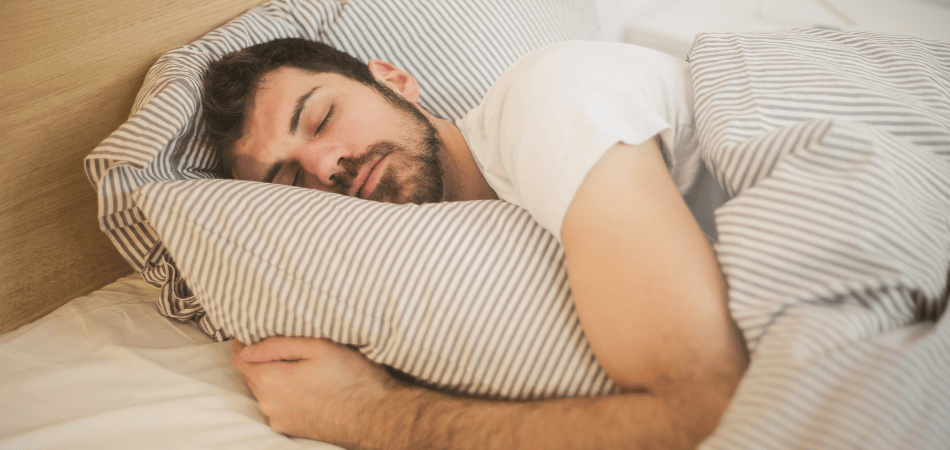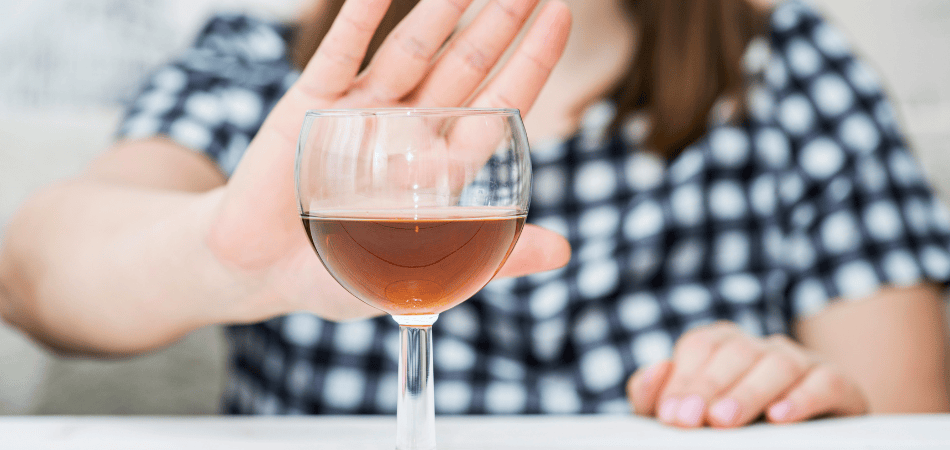
Written by:

Medically Reviewed by:
Last Updated:
August 13th, 2025
Whether you are in recovery from alcohol addiction or you are taking part in a global sober challenge, quitting alcohol can have a number of benefits for your health, relationships and general well-being.
It is important to remember, however, that if you are a heavy drinker or have been drinking to excess for a long time, the process of quitting can be difficult and can even cause dangerous withdrawal symptoms. To help you stay safe on your sobriety journey, we have put together a “Quitting Alcohol Timeline” to guide you through potential complications and how to combat them.
Quitting alcohol timeline
When you stop drinking, your body and mind will have the opportunity to begin the healing process. This can take time but can be a truly transformative experience. While everyone is different, here is a rough guide of what you can expect.
Day one…
The first day of abstaining from alcohol can often be the hardest. If you are addicted to alcohol, cravings and withdrawal may start to set in, making it difficult to stay away from drinking. You may also find yourself feeling anxious or moody or having difficulty concentrating or sleeping. These withdrawal symptoms are due to chemical imbalances in the brain that can take some time to regulate.
However, after just one day without drinking, your liver will start to repair itself from the damage caused by alcohol consumption. If you are not a heavy drinker, you may start to feel more energetic and alert as toxins are flushed out of your system.
Day three…
Around day three, if you are just a casual drinker, then any minor hangover-like symptoms you have been experiencing should start to dissipate. You may also start to notice physical improvements such as clearer skin and better digestion.
Even heavy drinkers can experience improved mental clarity and a more positive outlook by day three. This is due to the fact that alcohol is a depressant, so when you stop drinking it can lift your mood.
However, if you are heavily dependent on alcohol, you may begin to experience Delirium Tremens (DTs) at this stage. These are severe alcohol withdrawal symptoms that can include confusion, seizures and even hallucinations. If you experience any of these symptoms, seek medical attention right away because DTs can be very dangerous and potentially even fatal.
Day seven…
By day seven, your liver should be functioning more efficiently and you should have increased energy. Alcohol-related skin conditions like rosacea and psoriasis may start to improve due to increased hydration and you can expect to sleep better and have fewer headaches.
If you are in alcohol recovery, it is very important that these improvements don’t lull you into a false sense of security. It can take months or even years to fully recover from alcohol addiction, so it is important to stay focused on sobriety and take advantage of any support services that are available such as Alcoholics Anonymous.

Two to three weeks…
After a couple of weeks, your body should be adjusting to life without alcohol. You may find your appetite improving, and experience weight loss due to the loss of calories from alcohol. It’s important to eat nutritious meals during this time to build your strength and mind back up.
If you are in recovery from alcohol addiction, this is an ideal time to join a support group or seek counselling at alcohol rehab. These services can help provide the structure and accountability needed to maintain sobriety over the long term.
One month…
After one full month of abstaining from alcohol, any cravings for alcohol should have passed. You will also have reduced your risks of developing serious alcohol-related illnesses, such as heart disease, stroke and diseases linked to high blood pressure and cholesterol.
With all alcohol gone from the body, the livers of dependent drinkers may have started to repair themselves. Liver fat may have been reduced reducing the risk of liver cirrhosis and other issues.
Three months…
After three months of sobriety, the body will have fully adjusted to life without alcohol. Your sleep pattern should be back to normal and any changes in weight due to quitting drinking may have settled.
Those in recovery may find that after three months their alcohol cravings come less regularly and are easier to manage, particularly if they have been through rehab and learned new coping strategies. If a person has been suffering from depression, this may have also improved as the brain adjusts to life without alcohol.
Risks of certain cancers will also be reduced, including:
- Oral cancer
- Liver cancer
- Oesophagus cancer
- Colorectal cancer
- Breast cancer
- Pharynx cancer
- Stomach cancer
- Ovarian cancer
- Larynx cancer
Six months…
At six months of sobriety, you should start to notice significant improvements in physical and mental health. Your energy levels will be higher and any long-term conditions caused by drinking should have started to improve.
For those in recovery, the six-month point is a huge achievement and should be celebrated. Take the time to look at the money you have saved, your health improvements and the relationships you have been able to rekindle.
One year and beyond…
After one year, you should notice major improvements in physical and mental health. Your energy levels should be higher than ever before and any long-term conditions caused by drinking should have been reduced or eliminated. You should also be feeling more confident in your new sober lifestyle and taking advantage of all the opportunities that are now available to you.
Those in recovery from alcohol abuse or addiction are right to feel an immense sense of pride at achieving one year of sobriety. While recovery is a lifelong journey, after one year the chance of relapse is greatly reduced and your improved health and well-being should provide major motivation to stay the course.

What are the possible complications of quitting alcohol?
If you are alcohol dependent, the two most serious potential complications are Delirium Tremens (DTs) and Post-Acute Withdrawal Syndrome (PAWS).
Delirium Tremens
Delirium Tremens (DTs), also known as “the shakes”, is a severe form of alcohol withdrawal that can occur if you stop drinking too quickly or without professional medical help. Symptoms include confusion, fever, hallucinations and seizures. DTs can be fatal if not treated, so if you have a physical dependence on alcohol, you should always quit at a professional treatment centre like Primrose Lodge. That way, every stage of your withdrawal can be managed and you may even receive medication to manage any symptoms.
Post-Acute Withdrawal Syndrome
Post-Acute Withdrawal Syndrome (PAWS) is a condition that can occur for weeks or months after you stop drinking, with symptoms such as fatigue, depression and anxiety.
It can make it difficult to maintain sobriety long-term and is best managed with the help of addiction professionals. As with DTs, PAWS is most common in those who have been dependent on alcohol for a long time, so if this is the case with you, it’s important to seek help from professionals and not try to quit drinking alone.
How to quit alcohol safely
As you can see from our quitting alcohol timeline, we draw a distinction between those with alcohol dependency and people without dependency who just want to cut down on their alcohol consumption.
While many people are perfectly safe to quit alcohol on their own, for those with an addiction, it is always advisable to seek professional help at a specialist clinic like Primrose Lodge. This way, your withdrawal can be managed safely, any potential complications can be avoided and you can receive treatment for both the physical and psychological aspects of your condition. Our alcohol recovery programmes involve three important stages: detox, rehab treatment and aftercare.
Detox
Alcohol detox is the first step of the recovery process and involves weaning yourself off alcohol in a safe, supervised environment. This is the stage when withdrawal symptoms will likely arise so during your stay at Primrose Lodge, you will be provided with 24-hour medical care to ensure that any symptoms are managed appropriately.
Rehab
Alongside detox, you will also participate in alcohol rehab to help you understand your addiction and find strategies to stay sober long-term. We use a combination of different therapies to help you work through the psychological issues that caused your dependency in the first place and develop your own personal toolkit of life skills to prevent relapse in the future.

Aftercare
In order to maintain sobriety long-term, it is important to have a strong support network in place. At Primrose Lodge, we provide ongoing weekly group therapy for one year so no matter how difficult things get or what triggers come your way, you will have the support to help you stay sober.
Getting help to quit drinking
If you are addicted to alcohol and are ready to quit once and for all after viewing our quitting alcohol timeline, contact Primrose Lodge today. We are here to help you start your road to recovery and provide the support and guidance you need in order to achieve long-term sobriety.

